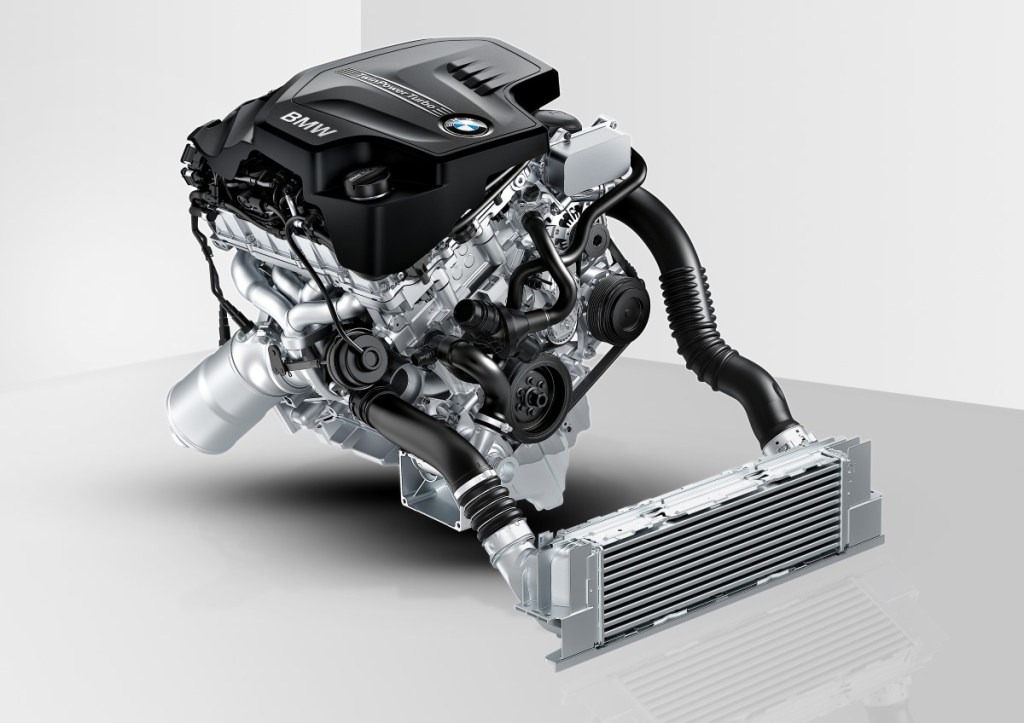
3 Common Problems with the 2012-2015 BMW 328i
The 2012-2015 BMW 328i was an affordable introduction to the new generation of BMW performance. It was more reliable than previous models thanks to a 2.0-liter turbocharged four-cylinder engine. You may expect the cost of maintaining a BMW to be higher than average, but the entry-level four-door is surprisingly reliable. However, there are still a few common problems that plague this generation of BMW 328i.
Oil leaks are a common BMW 328i problem

If you’ve ever owned a BMW, or currently own one, the thought of an oil leak makes you sigh. It’s a meme for a reason, and the 2012-2015 328i wasn’t immune to the problem. In the case of this generation, it was the N20 engine’s valve cover gasket that caused the most problems. Importantly, this oil leak isn’t a big cause for concern unless it goes unchecked.
Losing too much oil is, of course, a problem. But the valve cover gasket (VCG) is otherwise harmless and easy to replace. Compare that to a camshaft seal or turbo seal, and the VCG is perhaps the best place to find an oil leak.
The BMW N20 engine is notorious for timing chain guide problems

Early versions of the F30 BMW 328i generation had one notorious and catastrophic failure. Faulty timing chain guides would break and essentially destroy the motor. When the guides failed, the timing chain would lose tension, causing a myriad of internal engine problems. The issue was so problematic that BMW issued a recall and replaced the faulty guides.
Because the N20 is an interference engine, too much slack in the timing chain would cause the valves and pistons to meet. This internal collision led to complete engine failure requiring a replacement. Outside of a recall, replacing the timing chain guides is an expensive, time-consuming process. It requires special tools and expertise, and meant that only certain shops had the capability of handling the job.
Overheating and Cooling System Failure
Turbocharged engines are notorious for coolant loss, and the 2012-2015 BMW 328i doesn’t avoid the problem either. Typically, this BMW overheats for one of two reasons.
First, RepairPal notes that bad or faulty water pumps that will almost always need to be replaced at some point in the car’s life. The water pump in the N20 is rated to last 60,000 miles, though owners report replacing theirs as early as just 40,000 miles. That it is such a common failure point is frustrating, though not out of scope with most modern vehicles.
The second issue relates to coolant evaporation. Be it from the turbo lines or a faulty coolant reservoir cap, hot coolant will naturally evaporate from the system over time. Left unchecked, this can cause a low coolant condition and overheating.
Take care of these common problems to get the most out of a 2012-2015 BMW 328i
Overall, the BMW 328i is a reliable luxury car. However, you’ll want to make sure you’ve dealt with the above issues before you start racking up the miles. When buying used, be sure to check the service history to see how much of this work has been done. And if it hasn’t, discuss it with the seller and you may be able to work out a better deal and get the work done before you have a problem.



